In this guide, we introduce some of the primary tools used for development in web3.
MetaMusk
MetaMask is one of the most well-known digital wallets and operates as a cryptocurrency wallet through a browser plugin or mobile app. Users can connect to decentralized applications (dApps), such as DeFi and NFT platforms, using MetaMask and access various services.
For instance, purchasing NFTs on services like OpenSea becomes possible through MetaMask. Connecting your wallet to the site enables operations like purchasing on OpenSea.
MetaMask is primarily used for dApps operating on Ethereum and Ethereum-based blockchains. It can be utilized upon installation in a browser or as a mobile app.
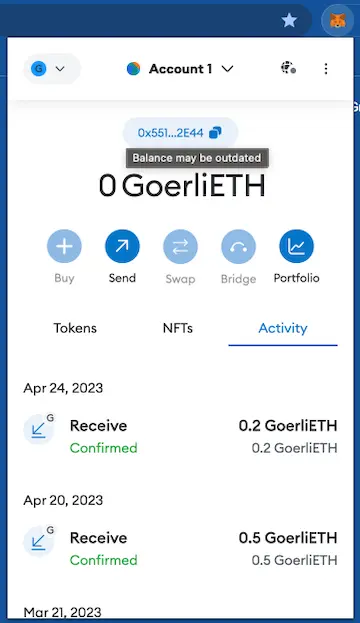
Setting Up MetaMask
The instructions for setting up MetaMask can be found on this page of the official MetaMask website.
Faucet
A Faucet is an online service that provides free virtual currency on testnets. Its primary purpose is to enable developers and testers to acquire cryptocurrency for operating and testing blockchain networks and smart contracts.
Typically used for development on testnets, developers can obtain test tokens or test ethers (e.g., GoerliETH for the Goerli testnet) using faucets for networks like Ethereum’s Goerli or Sepolia. The general mechanism of a faucet involves developers specifying their wallet address on the site, after which a certain amount of virtual currency is sent to that address. The obtained virtual currency can be used for executing transactions and testing smart contracts on the testnet.
Faucets are convenient for developers and testers to test blockchain operations without using real tokens or ether. They are also useful for those new to blockchain technology to experience actual transactions and wallet operations.
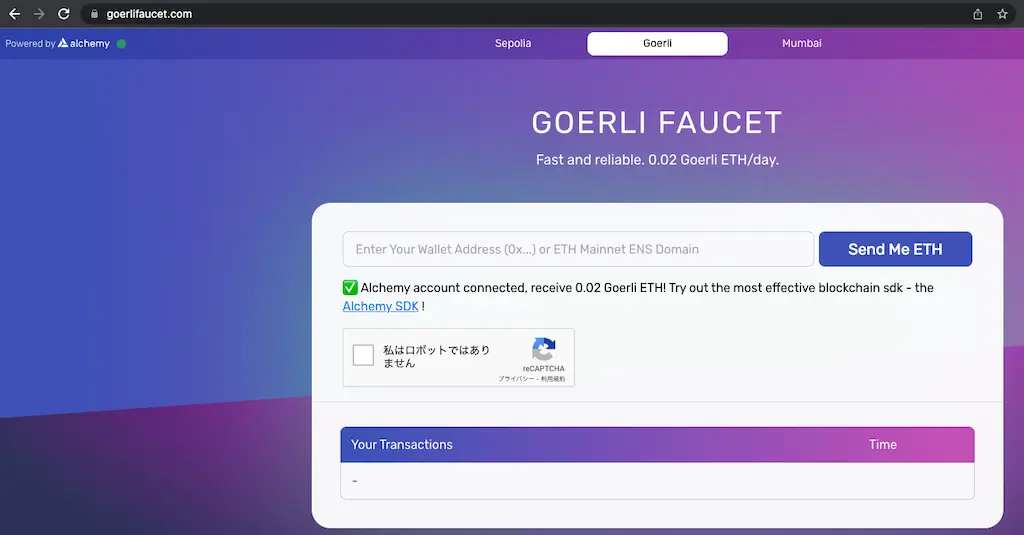
By entering your wallet address and clicking on ‘Send Me ETH,’ you can receive GoerliETH.
Etherscan
Etherscan is a tool for viewing transactions and account information on Ethereum and is also known as a blockchain explorer. It provides information on Ethereum transactions, details of smart contracts, account information (such as balances), transaction history, and block information.
Its main functions include:
- Transaction Viewing: Etherscan provides detailed information on transactions conducted on the Ethereum network, including transaction hashes, sender and recipient addresses, amount of tokens transferred, gas fees, and other details.
- Smart Contract Information: Etherscan offers detailed information on deployed smart contracts, including contract addresses, source code, contract functions and events, and transaction history.
- Account Information: With Etherscan, you can check information related to specific Ethereum addresses, including balances, transaction history, and token holdings.
- Block Information: Etherscan provides detailed information on blocks in the Ethereum blockchain, including block numbers, timestamps, the number of transactions included, and miner information.
Etherscan is a vital tool for researching Ethereum transactions and account information, enhancing the transparency and security of the blockchain. dApp developers and users can use Etherscan to check and monitor their transactions and the status of their smart contracts, allowing them to trace activities on the blockchain.
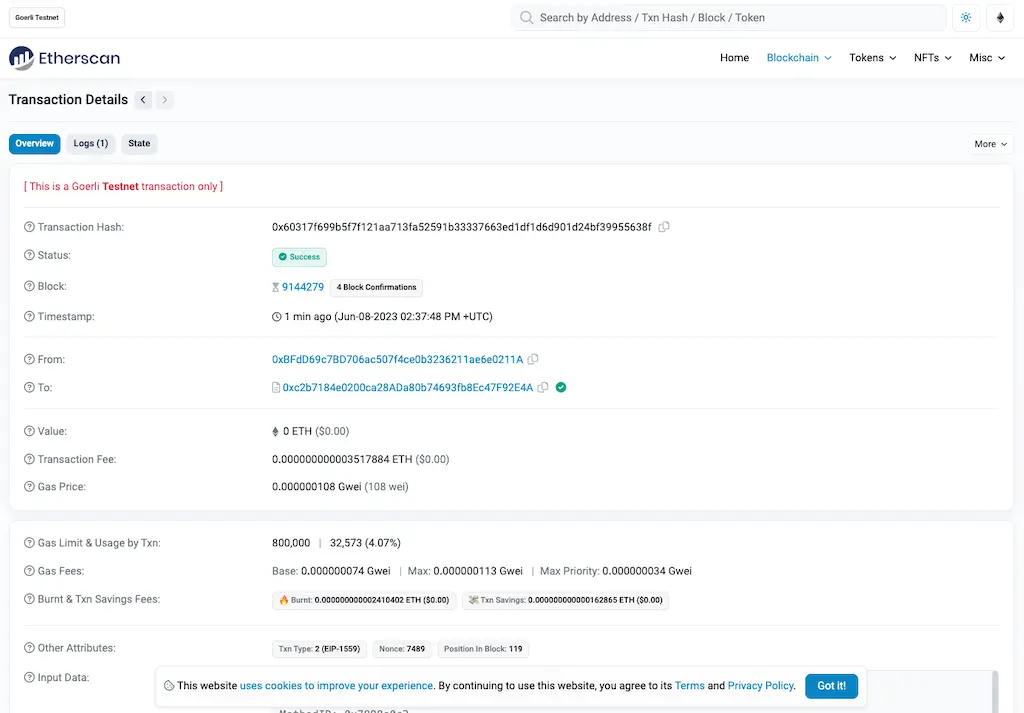
From, To: The sender and recipient addresses.
Value: The total amount of the transaction.
Gas Price: The cost of gas, among other details.
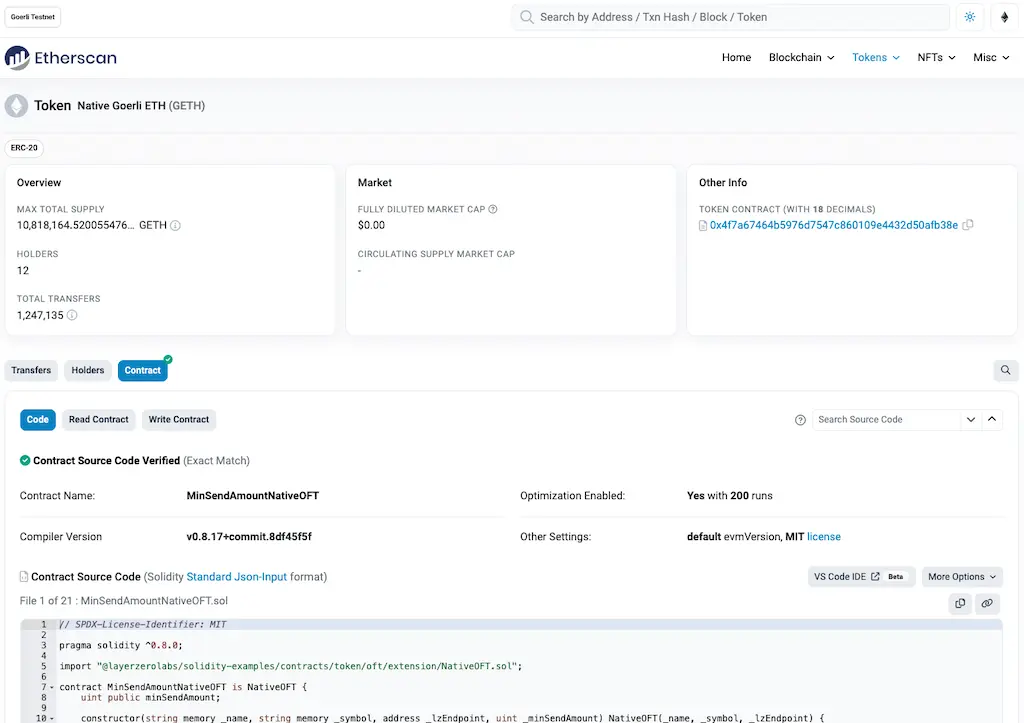
Remix
Remix is a web-based Integrated Development Environment (IDE) for developing and debugging Ethereum smart contracts. With Remix, developers can create, compile, deploy, and test smart contracts directly in the browser.
Remix offers the following key features:
- Smart Contract Creation: Remix provides an editor for writing smart contracts in Solidity language. Developers can input code and create smart contracts utilizing Remix’s syntax highlighting and auto-completion features.
- Compilation and Deployment: Remix compiles smart contracts, converting them into bytecode executable on the Ethereum Virtual Machine (EVM). It also allows for the execution of smart contracts on Remix’s VM, as well as deployment to testnets and the mainnet.
- Testing and Debugging: Remix offers functions to assist in testing and debugging smart contracts. Developers can easily create test cases and set breakpoints for step execution and debugging.
- Plugin Ecosystem: Remix features a plugin ecosystem, enabling developers to add or extend functionalities. Various plugins are available, such as those for static analysis, security checks, and gas optimization.
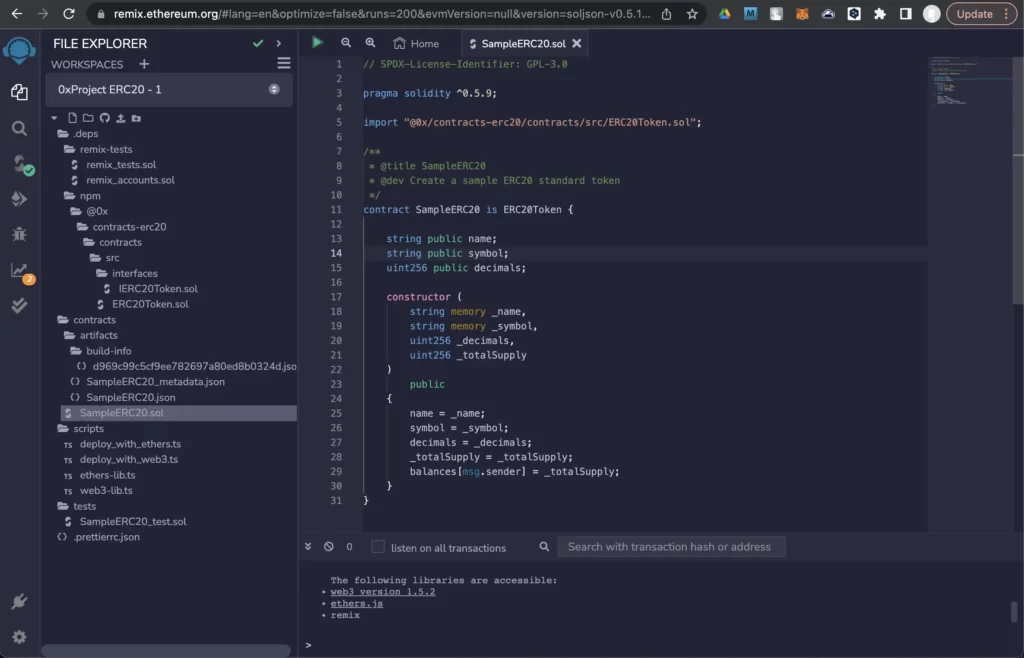
Hardhat
Hardhat is a development tool and framework designed to support the development and testing of smart contracts on Ethereum. It is intended to help Ethereum developers build smart contracts in an efficient and reliable manner.
The main features and functionalities of Hardhat include:
- Smart Contract Development: Hardhat supports the development of smart contracts written in Solidity language, providing an environment for creating, debugging, testing, and deploying code.
- Testing Framework: Hardhat offers a rich testing framework for automated testing of smart contracts. Developers can create their own test scripts to verify the functionality of their smart contracts.
- Local Network: Hardhat includes a virtual Ethereum network that operates in a local environment, allowing developers to develop and test smart contracts without connecting to the actual Ethereum network.
- Script and Task Execution: Hardhat provides functionalities for developers to run their own scripts and tasks, enabling automation of deployments and execution of specific operations.
- Plugin Ecosystem: Hardhat features a rich plugin ecosystem, enabling developers to implement additional functionalities and integrations.
Besides Hardhat, other frameworks are also used in web3 development, such as Truffle, Brownie, and Foundry. While this tutorial series uses Hardhat, exploring other frameworks and finding the most suitable tool for your needs can also be beneficial.
IPFS
IPFS (InterPlanetary File System) is a decentralized file system based on blockchain technology. It allows users to share and access files on a distributed network using unique identifiers (hashes) for files.
The main features and functionalities of IPFS include:
- Decentralized Architecture: IPFS employs a decentralized architecture where files are stored and provided by users’ devices instead of centralized servers. This enhances redundancy and availability of files, increasing the overall reliability of the system.
- Content Addressing: IPFS references files using unique identifiers. Files are identified based on their content, not the file itself. Therefore, identical files have the same identifier and are shared across the network. This eliminates data duplication and enables efficient data management.
- Caching and Speed: IPFS includes caching capabilities, allowing for fast data access by retrieving files from nearby peers. As data is provided by users, it also distributes network load.
- Version Control: IPFS tracks the change history of files and supports version control. Modified files are identified with a new hash, while previous versions are also retained, ensuring data persistence and transparency.
- Security: IPFS uses encryption technologies to protect the integrity and security of files. Since files are identified by hashes, any tampering with data can be detected.
IPFS represents a novel approach to decentralized file sharing and data management, offering various advantages such as efficient data distribution, improved reliability, and enhanced security. It is utilized in various scenarios, including decentralized applications and blockchain projects.





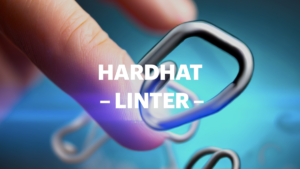



Comments